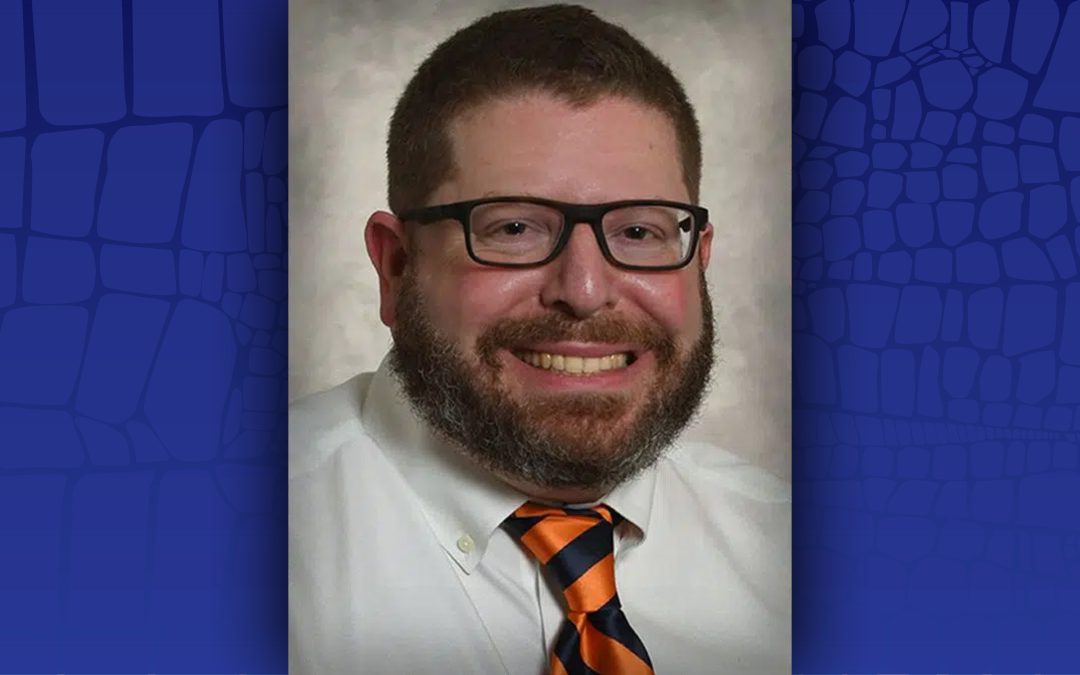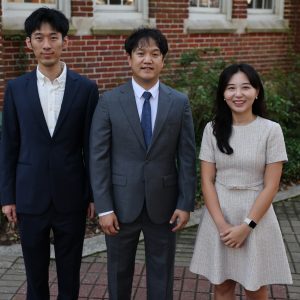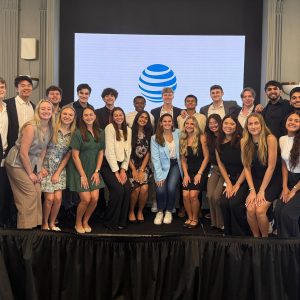Award-winning dissertation reveals that women commit embezzlement more than men
Contrary to prior belief, women commit more embezzlement in the workplace than men. Dr. David P. Weber (DBA ’23) made this discovery in his dissertation for candidacy in the University of Florida Warrington College of Business Doctor of Business Administration (DBA) program, and recently received the American Accounting Association’s Timothy Pearson Best Dissertation award in recognition of his work.
Using data from the United States federal court system filed between 2007 and 2017, Weber created the first large-scale study to show that women are more engaged in all forms of embezzlement in the nation. Amongst the data, he also discovered that the number of federal convictions for embezzlement within the nation fell by 50% within the ten-year period; meanwhile, the cases that were prosecuted showed embezzlements more than three times as large as the amounts recorded at the beginning of the ten-year period. In other words, while fraud was getting worse, the government prosecuted significantly less cases.
“Prior academic literature suggested that men, not women, were the main offenders of embezzlements and other frauds,” Weber explained. “I knew from my experiences as the chief investigator of the U.S. Securities and Exchange Commission that the prior research was wrong, or at least not looking at the right data to measure the true problem. The challenge was to identify a data set from practice that could, using the research process, determine the truth about who commits fraud.”
Weber earned his undergraduate degree in criminal justice in 1995 and his juris doctorate in law in 1998 from Syracuse University and his DBA from UF in 2023. A lawyer, forensic accountant and Certified Fraud Examiner, he built a career as a federal investigator and prosecutor, principal attorney and expert witness at Goodwin Weber PLLC. After the conclusion of his federal career, he became a professor of the practice at Salisbury University’s Perdue School of Business, a dual-accredited AACSB accounting and business program, where he directs the Fraud and Forensic Accounting Certificate Program.
“Without the education I received in the UF DBA program, I would never have been able to write a research paper like my dissertation,” Weber shared. “I was trained as a lawyer and am now in my third decade practicing law and investigating fraud. Everything I learned about accounting research came from the doctoral experience.”
Inspiration for the topic of his dissertation came during a UF seminar on organizational behavior. While studying literature pertaining to the seminar, Weber recognized from his previous work experiences that the information needed to be updated and decided to undertake the task himself. Using the skills he’d been gaining through the DBA program, he handled the enormous pool of data and created a project worthy of the Timothy Pearson Best Dissertation award.
“Most importantly, having been a forensic accountant and lawyer for more than two decades, I knew Timothy Pearson personally,” Weber said. “Timothy was a professor at West Virginia University and a thought leader in fraud examination and forensic accounting. He met an untimely death during the pandemic.
“To receive an award named for him is just really humbling and special for me.”
The Timothy Pearson Best Dissertation Paper award is given to the author of a recently completed dissertation related to forensic accounting. Criteria for the best dissertation includes originality, empirical, experimental or methodological design, contribution to the literature and impact on practice. It is awarded annually by the American Accounting Association, of which Weber is a member.
“Investigators, forensic accountants and fraud professionals should never have tunnel vision while conducting investigations,” he said. “Doing so could unintentionally exclude the actual suspect(s). This research demonstrates something novel and interesting: that women are engaged in more fraud, at least frauds of embezzlement.
“Over time, this research will undoubtedly be replicated in other nations, and likely show similar findings. That in turn will change the conversation on who actually commits fraud in the workplace.”




